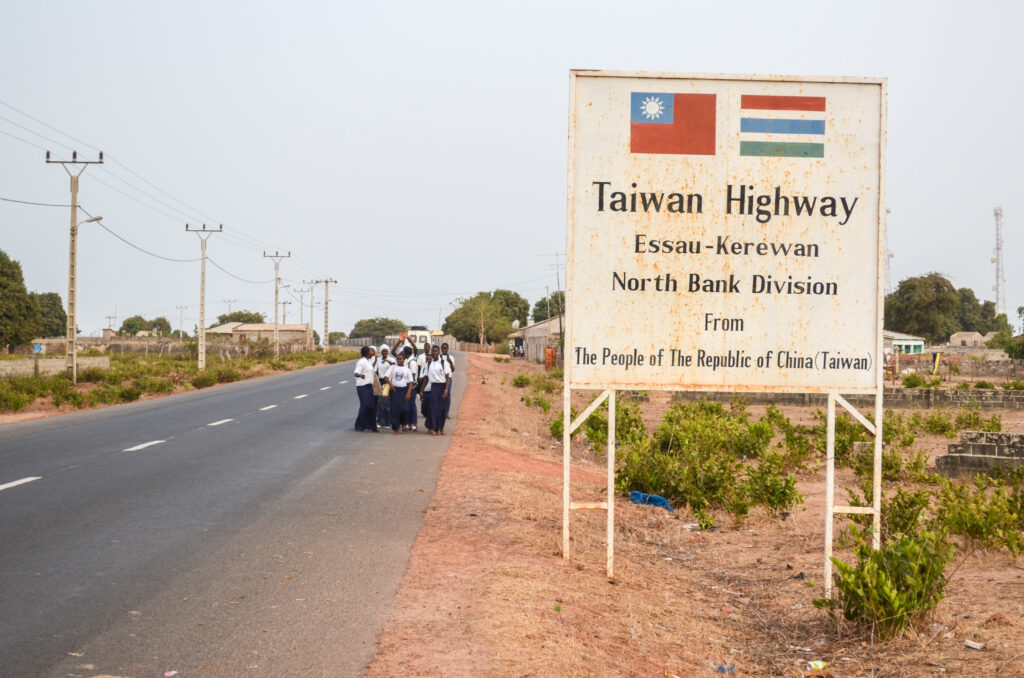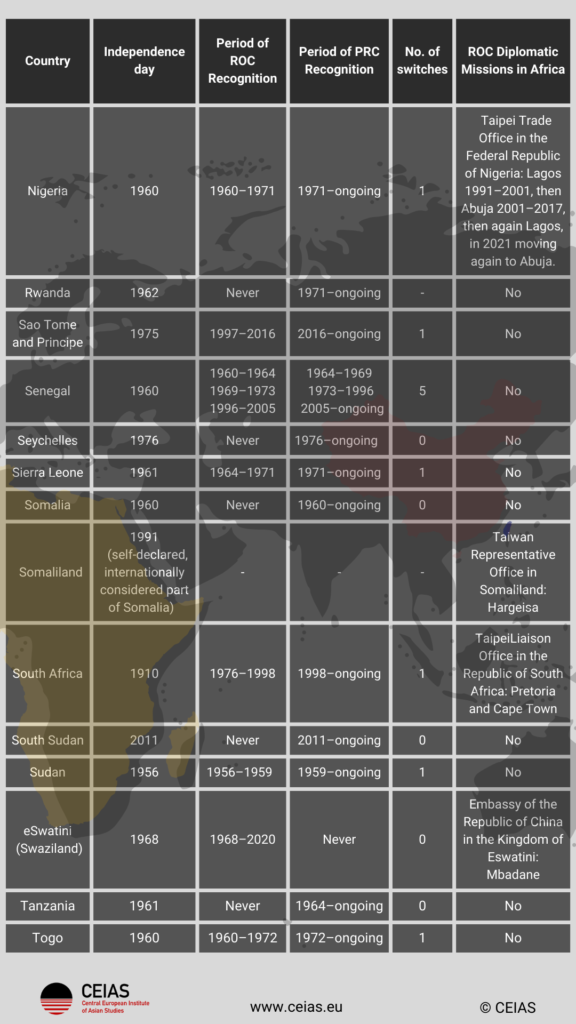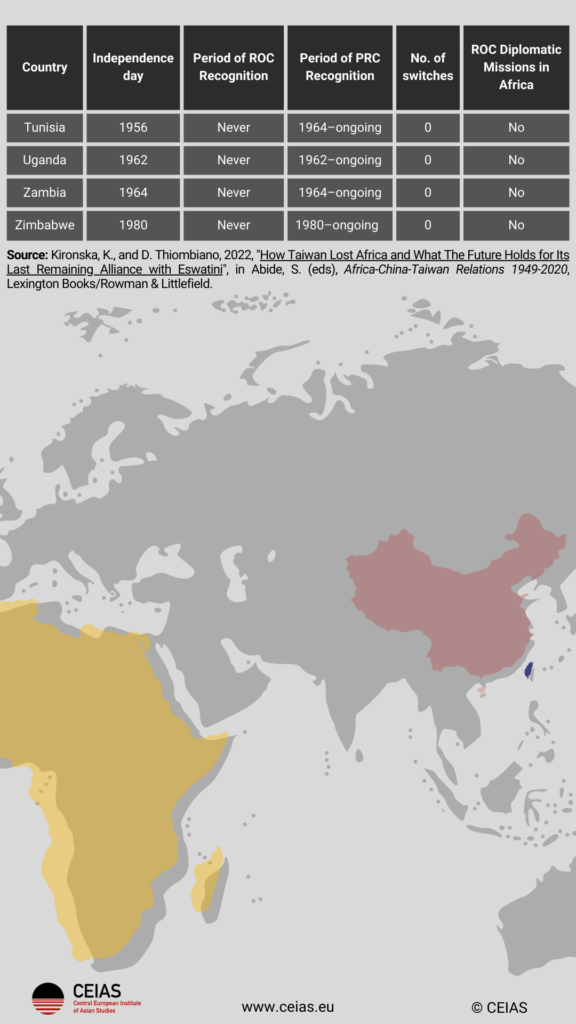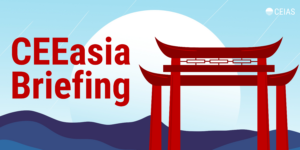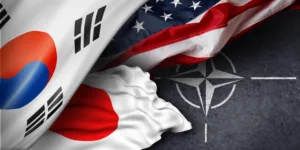Taiwan (ROC) has little problem establishing unofficial ties with countries around the world, but it encounters obstacles when attempting to formalize diplomatic relations, due to China’s concerted efforts to prevent such developments. China (PRC) sees itself as the sole representative of China and does not allow states to have official diplomatic relations with both the PRC and the ROC. The One China principle is a major Chinese foreign relations objective – an exception from the usual no-strings-attached policy of China.
Taiwan has 13 remaining official diplomatic allies, all comparatively weak countries in the developing world, with the exception of Vatican. In Africa, Taiwan has only one diplomatic ally – Eswatini (formerly Swaziland).
This was not always the case. At one point the ROC had around 30 African allies. In 1971, when China managed to gain the seat in the UN as the legitimate representative in China, replacing the ROC, the African continent was evenly split between the two contenders. Since then, China has attracted one African country after another to its side. Today China has relations with 54 countries out of 55 African countries.
The road to this achievement, however, was quite fierce. In the 1970s, -80s, and -90s, Taiwan’s economic power enabled it to win recognition from several countries in need of cash, with the help of the so-called dollar diplomacy. Also, Cold War rationales initially benefited Taiwan (fighting communism). China was winning allies at first on ideological grounds – likening China and African countries to each other as victims of Western imperialism – and after China undertook reforms, ideological motives made way for economic ones.
During this time, some African countries used the China card to gain as much as possible and switched frequently, each time requesting more incentives. Senegal, Liberia, and CAR switched five times, many other countries three times. Liberia is an interesting case, as it established ties with both the PRC and the ROC at the same time between 1993 and 1997 (however, when in 1997 Liberia wanted to recognize “two Chinas” the PRC severed ties).
In the 1990s, there was still a kind of fair fight between the two entities, because China was not so rich; now, there is no longer any contest. China is now a powerful economy that can use its economic might to woo poor African countries. Indeed, for most countries that made the switch, suddenly China-bound exports grew quite substantially.
Thus, Taiwan now uses different strategy – establishing unofficial ties. In Africa, besides having Eswatini as an official ally, Taiwan has three representative offices – in South Africa, Somaliland, and Nigeria. Additionally, TAITRA, established in the 1970s and tasked with developing economic relations with countries, even the ones that recognize China, has offices in Egypt, Kenya, South Africa, Nigeria, and Algeria.
The following table gives an overview of all African countries and their relationship to both the PRC and the ROC, and the switches that some of them made over the years.
This work has received funding from the European Union’s Horizon Europe coordination and support action 101079069 — EUVIP — HORIZON-WIDERA-2021-ACCESS-03.
Funded by the European Union. Views and opinions expressed are however those of the author(s) only and do not necessarily reflect those of the European Union or the European Research Executive Agency (REA) . Neither the European Union nor the granting authority can be held responsible for them.
Cover photo: Flickr / jbdodane

